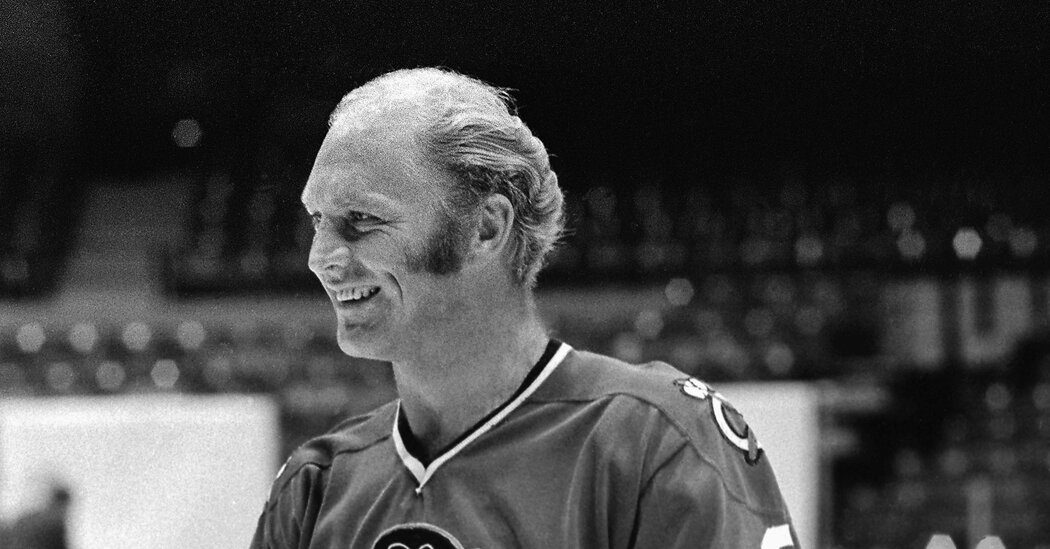Bobby Hull, a charismatic Hall of Famer who was one of the National Hockey League’s superstars of the 1960s and whose blond hair, lightning-fast slap shot and furious, rink-length offensive rushes earned him the nickname “the Golden Jet,” died on Monday. He was 84.
The Chicago Blackhawks, for whom Hull played for 15 seasons, announced his death but did not say where he died or cite a cause.
Hull’s great upper body strength lent power to a fearsome slap shot that was measured over the years at between 97 and 120 miles per hour. Glenn Hall, a Blackhawks goalie who faced Hull in practice, once said, “The idea was not to stop that thing, but to avoid getting killed.”
Ed Giacomin, a goalie for the New York Rangers, told The New York Times in 1988 that Hull’s slap shot “would rise or dip. You’d pull up when you should really be ducking. It played games with your mind.”
Hull was the third player in N.H.L. history to score at least 50 goals in a season, following Maurice Richard and Bernard Geoffrion, both of them Montreal Canadiens. He scored 50 goals or more five times with the Blackhawks, peaking at 58 during the 1968-69 season.
With Stan Mikita, Hull helped turn around the fortunes of the Blackhawks, which had been a mostly moribund franchise for about a dozen seasons until they joined it in the late 1950s. In 1961, Chicago won its first Stanley Cup championship in 23 years — Hull scored 14 points in the playoffs against the Canadiens and Detroit Red Wings — and the team stayed competitive through their time there.
Hull had scored 604 goals for the Blackhawks by the time he became the first N.H.L. superstar to defect to the upstart World Hockey Association in 1972, signing a 10-year contract with the Winnipeg Jets that was worth at least $2.5 million, including a $1 million signing bonus, to be the team’s player-coach.
A temporary restraining order imposed by a judge in Chicago kept him from joining the Jets until after the 1972-73 season started. But once he was back on the ice, he continued to flummox and terrify goalies. He scored 51 and 53 goals in his first two years, then 77 in the 1974-75 season.
In all, he added 303 goals to his career total with the W.H.A.
While playing with the Jets, he sat out a game in 1975 to protest brutality of violence in the sport and promoted a merger between the N.H.L. and W.H.A.
And he said he did not regret leaving the Blackhawks for the upstart Jets.
“I knew when I came here it would be a lot of hard…
Click Here to Read the Full Original Article at "ice hockey" – Google News…

